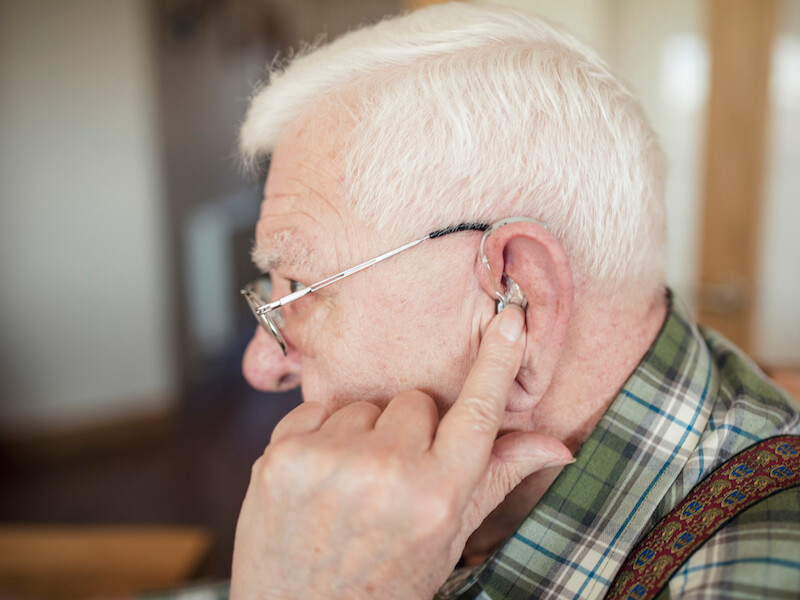
Does it seem like your hearing aid batteries lose their charge too fast? The reasons for this can be sometimes surprising. How long should hearing aid batteries last? The typical hearing aid battery should last anywhere from 3 to 7 days. That range is fairly wide. Actually, it’s so wide that it probably can’t help you predict what should be happening with your hearing aid. Things could suddenly go quiet when you’re trying to hear the cashier at the supermarket after 4 days of battery power. Or it’s day 5 and you’re having a call with friends when all of a sudden you find yourself feeling really alone because you can no longer hear the conversation. Now, you’re watching the TV. You can no longer hear the news. Hold on, it’s only day 2. Yes, sometimes they even die before that 3-day mark. It’s more than a little inconvenient. You’re missing out on life because you don’t know how much battery power is left in your hearing aids. Here are the likely culprits if your hearing aid batteries die too soon.
Moisture Can Deplete a Battery
There aren’t many species that release moisture through their skin but humans do. We do it to cool off. We do it to get rid of excess toxins or sodium in the blood. On top of this, you may live in a rainy or humid climate where things are even more moist. This extra moisture can clog the air vent in your device, making it less efficient. Moisture can also mix with the chemicals of the battery causing it to drain faster. Here are some measures you can take to avoid moisture-caused battery drain:
- Don’t leave the batteries in if you’re storing them for several days
- Open the battery door before storing the hearing aids
- A dehumidifier for your hearing aid is helpful
- Moist conditions, like the kitchen or bathroom are not a good place to keep your hearing aids
Advanced Hearing Aid Functions Can Deplete Batteries
You get a much better hearing aid today than you did even ten years ago. But if you’re not keeping your eye on them, these advanced functions can cause faster battery drain. You can still use your favorite features. But just know that if you stream music for hours from your mobile device to your hearing aids, you’ll need to change the battery sooner. Your battery can be drained by any of the advanced functions, like Bluetooth, multichannel, noise cancellation, and tinnitus relief.
Altitude Changes Can Impact Batteries Too
Your batteries can be sapped out if you go from low to high altitudes specifically if they are already low on juice. Take some spare batteries if you are going on a plane or high up into the mountains.
It’s Possible That The Batteries Aren’t Really Low
Some models will give you an alert when the battery starts to get too low. These alerts are, ordinarily, a “heads up”. They’re not telling you the battery is dead. Also, the charge can at times drop briefly due to altitude or environmental changes and that can activate a false low battery warning. Take the hearing aids out and reset them to end the alarm. You might be able to get several more hours or possibly even days out of that battery.
Handling Batteries Improperly
You should never take out the little tab from the battery before you’re ready to use it. Avoid getting skin oil and dirt on your hearing aid by washing your hands before handling them. Hearing aid batteries should not be frozen. This technique might extend the life of some kinds of battery but it doesn’t work with hearing aid batteries. Simple handling mistakes like these can cause hearing aid batteries to drain more quickly.
Purchasing a Year’s Supply of Batteries Isn’t a Good Plan
Buying in bulk is usually a smart money decision if you can afford to do it. But as you get toward the end of the pack, the last several batteries likely won’t last as long. Unless you’re fine with wasting a few, try to stick to a six month supply.
Shopping For Hearing Aid Batteries Online
Buying online can be a good thing. There are some pretty great deals out in cyberspace. But some less scrupulous people will sell batteries on the internet that are very close to the expiration date. Or worse, it has already passed. So you need to be cautious.
Both alkaline (AA, AAA, etc.) and zinc hearing aid batteries have a date they will expire. You wouldn’t buy milk without checking the expiration date. You have to use the same amount of care with batteries. If you want to get the most from your pack, be sure the date is well in the future. If the website doesn’t specify an expiration date, send the online vendor a message, or purchase batteries directly from us. Only buy batteries from reliable sources.
Modern Hearing Aids Are Rechargeable
There are a number of reasons that hearing batteries may drain rapidly. But you can get more life out of your batteries by taking some precautions. You might also think about rechargeable hearing aids if you’re in the market for a new set. You put them on a charger every night for a full charge the next day. And you only have to change them every few years.